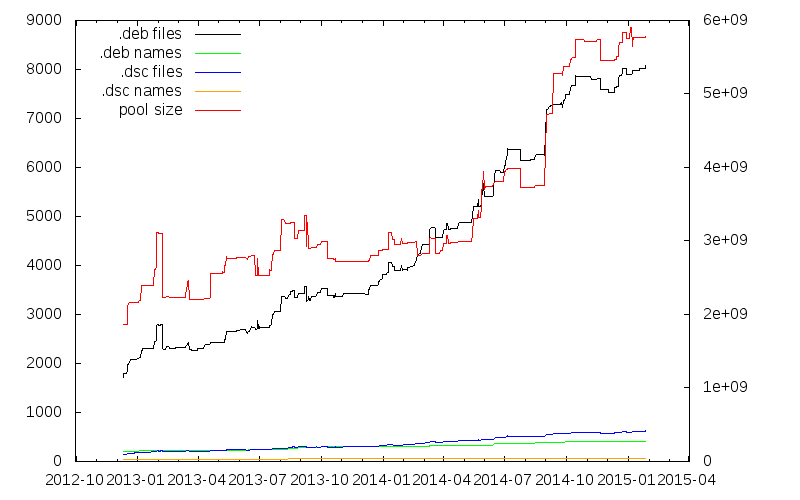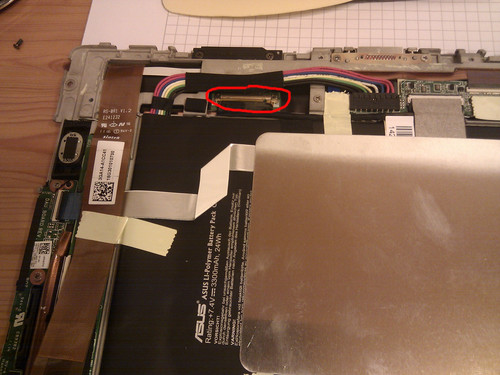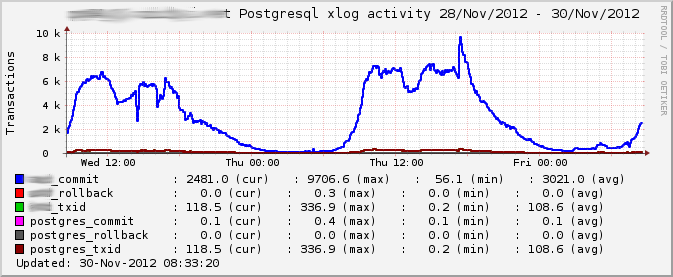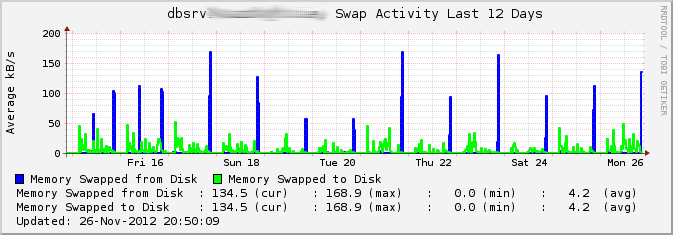Lunar: Reproducible builds: week 3 in Stretch cycle
 What happened about the reproducible
builds effort for this week:
Toolchain fixes
What happened about the reproducible
builds effort for this week:
Toolchain fixes
- Stephen Kitt uploaded binutils-mingw-w64/6 which enabled deterministic archives.
- Daniel Stender uploaded gamera/3.4.2-1 which removed timestamps from the documentation generator output.
- Emmanuel Bourg uploaded maven-archiver/2.6-2 which formatted the date in pom.properties with the UTC timezone.
- Dmitry Shachnev uploaded python-qt4/4.11.3+dfsg-2 which removes timestamps from generated files. Original patch by Reiner Herrmann.
- cgal/4.6-3 by Joachim Reichel.
- cmake/3.2.2-1 by Felix Geyer.
- dbus/1.8.16-2 by Simon McVittie.
- dialog/1.2-20150513-1 by Santiago Vila.
- dmaths/3.5.2.5+dfsg1-1 by Innocent De Marchi.
- faad2/2.8.0~cvs20150510-1 by Fabian Greffrath.
- fence-agents/4.0.18-1 by Christoph Berg.
- gamera/3.4.2-1 uploaded by Daniel Stender, original patch by Reiner Herrmann.
- hello-traditional/2.10-3 by Santiago Vila.
- libapache2-mod-perl2/2.0.9~rc1-1 uploaded by Niko Tyni, fixed upstream.
- libdbix-fulltextsearch-perl/0.73-11 uploaded by Dominic Hargreaves, original patch by Chris Lamb.
- libjpeg-turbo/1:1.4.0-7 uploaded by Ond ej Sur , original patch by Reiner Herrmann.
- libtime-format-perl/1.12-2 by gregor herrmann.
- libx11-keyboard-perl/1.4-5 by gregor herrmann.
- mailman/1:2.1.20-1 uploaded by Thijs Kinkhorst, original patch by Lunar.
- miscfiles/1.4.2.dfsg.1-10 uploaded by Robert Luberda, original patch by Chris Lamb.
- mkvtoolnix/7.9.0-1 uploaded by Christian Marillat, fixed upstream.
- mozilla-dom-inspector/1:2.0.15-1 by David Pr vot.
- nano/2.3.99pre3-1 uploaded by Jordi Mallach, original patch by Lunar.
- ndiswrapper/1.59-3 uploaded by Julian Andres Klode, original patch by Chris Lamb.
- original-awk/2012-12-20-3 uploaded by Santiago Vila, original patch by Chris Lamb.
- procmail/3.22-25 uploaded by Santiago Vila, original patch by Lunar.
- pxz/4.999.99~beta4+gitae80846-2 by Holger Levsen.
- python-tuskarclient/0.1.17-2 uploaded by Thomas Goirand, original patch by Reiner Herrmann.
- routino/2.7.3-2 by Bas Couwenberg.
- scantailor/0.9.11.1-3 by Daniel Stender.
- serverstats/0.8.2-11 prepared by Bjoern Boschman, original patch and upload by Chris Lamb.
- sysstat/11.1.3-1 by Robert Luberda.
- t-prot/3.4-3 by Axel Beckert.
- wmsystemtray/1.4+git20150508-1 by Doug Torrance.
- yafc/1.3.6-1 uploaded by Sebastian Ramacher, fixed upstream
- allegro4.4/2:4.4.2-6 uploaded by Andreas R nnquist, original patch by Chris Lamb.
- base-files/9.1 uploaded by Santiago Vila, original patch by Lunar, follow-up patch submitted to fix umask-related variations.
- castle-game-engine/5.1.1-2 by Paul Gevers.
- device3dfx/2013.08.08-2 uploaded by Guillem Jover, original patch by Chris Lamb.
- gettext/0.19.4-1 by Santiago Vila.
- sendmail/8.14.9-1 by Andreas Beckmann.
- smartlist/3.15-24 Santiago Vila Use gzip -n to stop recording current time. Closes: #777445.
- uruk/20150401-1 uploaded by Joost van Baal-Ili , original patch by Chris Lamb.
contrib:
- Dmitry Smirnov uploaded fheroes2-pkg/0+svn20150122r3274-2-2.
Thanks to the reproducible-build team for running a buildd from hell. gregor herrmannMattia Rizzolo modified the script added last week to reschedule a package from Alioth, a reason can now be optionally specified. Holger Levsen splitted the package sets page so each set now has its own page. He also added new sets for Java packages, Haskell packages, Ruby packages, debian-installer packages, Go packages, and OCaml packages. Reiner Herrmann added locales-all to the set of packages installed in the build environment as its needed to properly identify variations due to the current locale. Holger Levsen improved the scheduling so new uploads get tested sooner. He also changed the
.json output that is used by
tracker.debian.org to lists FTBFS issues again
but only for issues unrelated to the toolchain or our test setup. Amongst many
other small fixes and additions, the graph colors should now be
more friendly to red-colorblind people.
The fix for pbuilder given in
#677666 by Tim Landscheidt is now used. This
fixed several FTBFS for OCaml packages.
Work on rebuilding with different CPU has continued, a kvm-on-kvm build host
has been set been set up for this purpose.
debbindiff development
Version 19 of
debbindiff included a fix for a
regression when handling info files.
Version 20 fixes a bug when diffing
files with many differences toward a last line with no newlines. It also now
uses the proper encoding when writing the text output to a
pipe, and detects info files better.
Documentation update
Thanks to Santiago Vila, the unneeded -depth option used with find when
fixing mtimes has been removed from the examples.
Package reviews
113 obsolete
reviews have
been removed this week while 77 has been added.
 My recent Debian LTS activities
My recent Debian LTS activities At this year's FOSDEM I gave a talk in the PostgreSQL devroom
about
At this year's FOSDEM I gave a talk in the PostgreSQL devroom
about  The yellow line at the very bottom is the number of different source package
names, currently 71. From that, a somewhat larger number of actual source
packages that include the "pgdgXX" version suffixes targeting the various
distributions we have is built (blue). The number of different binary package
names (green) is in about the same range. The dimension explosion then happens
for the actual number of binary packages (black, almost 8000) targeting all
distributions and architectures.
The red line is the total size of the pool/ directory, currently a bit less
than 6GB.
(The graphs sometimes decrease when packages in the -testing distributions are
promoted to the live distributions and the old live packages get removed.)
The yellow line at the very bottom is the number of different source package
names, currently 71. From that, a somewhat larger number of actual source
packages that include the "pgdgXX" version suffixes targeting the various
distributions we have is built (blue). The number of different binary package
names (green) is in about the same range. The dimension explosion then happens
for the actual number of binary packages (black, almost 8000) targeting all
distributions and architectures.
The red line is the total size of the pool/ directory, currently a bit less
than 6GB.
(The graphs sometimes decrease when packages in the -testing distributions are
promoted to the live distributions and the old live packages get removed.)
 When we setup
When we setup 
 The culprit turned out to be the kernel scheduler, fairly distributing CPU time
among all running processes. There's one single pgbouncer process, but hundreds
of postgres processes.
A simple renice of the pgbouncer process did the trick and gave us another
extra 2k tps.
The culprit turned out to be the kernel scheduler, fairly distributing CPU time
among all running processes. There's one single pgbouncer process, but hundreds
of postgres processes.
A simple renice of the pgbouncer process did the trick and gave us another
extra 2k tps.
 It turned out the reason is there are two clusters running, and the second one
isn't used as heavily as the first one. Disk I/O activity of the first cluster
slowly evicts pages from the second shared buffers cache to swap, and then the
daily pg_dump run reads them back every evening.
I was not aware of an easy way to get numbers for "amount of SysV shared memory
swapped to disk", but some googling led to shmctl(2):
It turned out the reason is there are two clusters running, and the second one
isn't used as heavily as the first one. Disk I/O activity of the first cluster
slowly evicts pages from the second shared buffers cache to swap, and then the
daily pg_dump run reads them back every evening.
I was not aware of an easy way to get numbers for "amount of SysV shared memory
swapped to disk", but some googling led to shmctl(2):